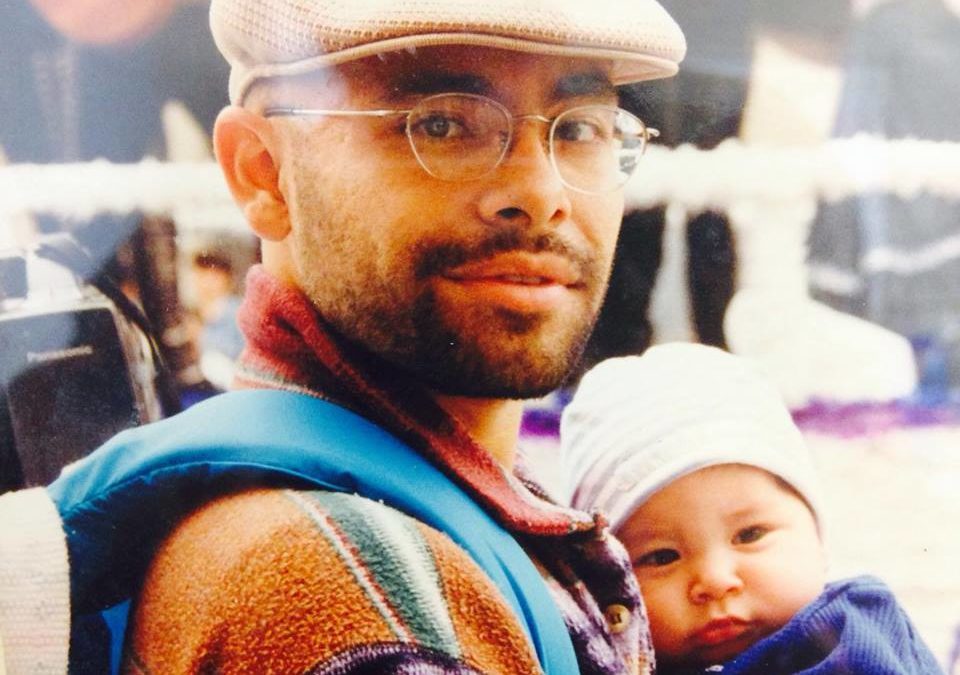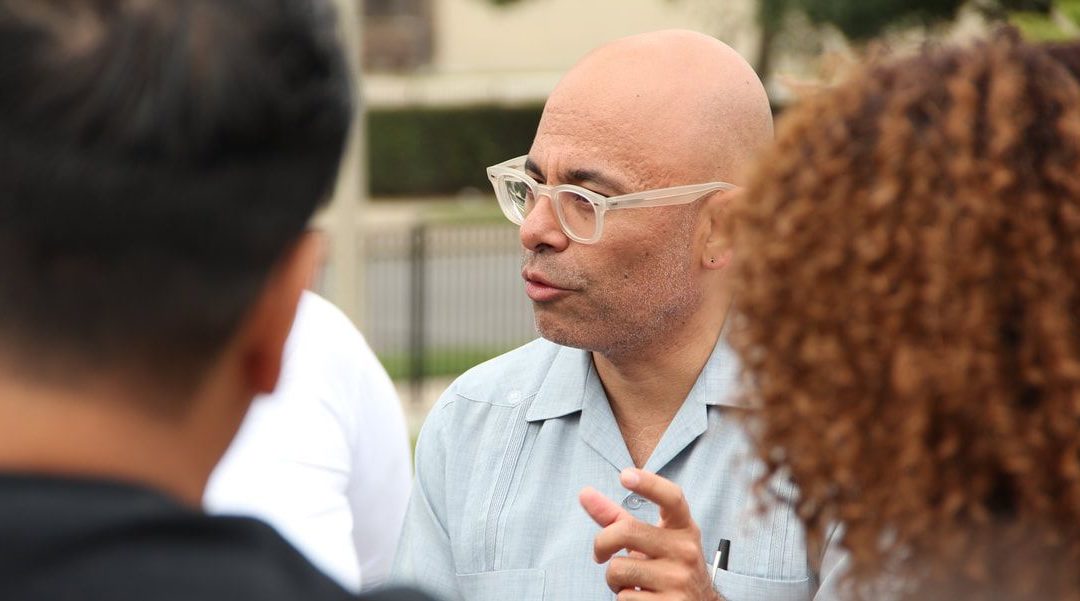
by José Rico | Jun 7, 2018
Most of my life has been a search for home. As a young child, I arrived in Chicago with my younger brother, Carlos, following my parents who had migrated to the US years earlier in search of better opportunities for a young family. When we arrived, we met our new sister, Flor, in a two-bedroom in Pilsen. The Rico family, who came from self-sufficient farmers in Michoacan, Mexico, became economic refugees due to the privatization of our communal lands. This forced migration led us to the southwest side of Chicago, where my parents found work in the railroads and the Zenith factory on the west side.
Before we arrived in Chicago, my brother and I lived with our Abuela Lupe, alongside uncles and aunts. Our home, a small tin roof room on the outskirts of Mexico City, was a place where we all worked hard, where everyone contributed to make ends meet. I learned the basics of farming, selling, and how to heal and sustain ourselves from the plants around us, like nopales, manzanilla, rueda, and many others. We faced the challenges of dislocation, but we also discovered resilience as we were first transplanted from the fields of Michoacan to the city of Nezahualcoyotl.
However, our home in Neza was temporary. Our parents had saved enough money for us to make the trek to Tijauna so we could cross the border and join them in Chicago. My clearest memories of my childhood happened during that trip, taking the train from Mexico City to Tijuana, getting in a laundry bag and being smuggled in a station wagon across the border by a white family, and getting sick when they fed me my first processed meal at the parking lot of the San Diego Zoo. We became undocumented immigrants in a country that simultaneously exploited and rejected us. The stark contrast between my Mexican home and the cold reality of Chicago hit me hard. Growing up, I witnessed gang shootings, INS raids, and arbitrary expulsion of students from school. As a second-grade student, I became aware of being hunted and dispensable.
My educational journey in Chicago was a struggle. Despite my family’s sacrifice for a better life through education, I faced cultural attacks and discrimination. Labeled a special education student in the first week, I was segregated from regular classes, denied access to programs, and treated as unteachable due to my limited English proficiency.
The turning point came in college, where I discovered the intentional policies that separated families and caused me immense pain due to my undocumented status. This realization fueled my activism against dehumanizing practices, leading protests against Chief Illiniwek, the Gulf War, and the Rodney King verdict.
I became a teacher when I returned to Chicago driven by the desire to disrupt the cycle of oppression I experienced in my schooling. Teaching at Latino Youth Alternative High School, I encountered students labeled as dropouts and gang members. Their stories transformed me, revealing the deep trauma carried by those who had experienced homelessness and violence.
Teaching became a powerful tool for personal transformation. My classroom became a place where I implemented healing circles, acquired social services for students, and organized direct actions against root causes, like joblessness and criminalization of young people.
In the challenging 90s, amidst budget cuts and social service eliminations, I witnessed the impact on marginalized communities. Policies like the three strikes law, increased deportations, and privatization of education exacerbated suffering and fear. Through my relationships with young people in my neighborhood, what others would label a ghetto, became my new home, filled with love, resistance, and joy.
Becoming a father deepened my commitment to community improvement. My son Tizoc, born with cerebral palsy, faced numerous challenges. He didn’t see himself as suffering from a disability and approached life with so much joy! The inability of institutions to provide him access led his mom and us to a long fight for access to a neighborhood high school. Their sacrifice and community organizing allowed the community to create a school centered on community ownership and personalized instruction.
I became the principal of an arts-integrated, mastery-based high school. We co-created a community of teachers, parents, and students who created a home for each other and believed in personal and community transformation. My son graduated from Little Village Lawndale High School and received a full scholarship to an elite liberal arts college. Despite our generational differences, it’s incredible how his life mirrors how I’ve navigated our world. My language and immigration status were my wheelchair and crutches. He has reminded me that everyone needs support. That he has a unique voice and struggle he has to fight for. That we need to be ready to provide unconditional love, and that we need to hold everyone accountable to ensure we can live in peace, with our basic needs met and a place we can call home. That day will come when we work together to make it happen.
Today, I greet my Abuela every morning with a heart filled with love. The journey may have been arduous, but it is a testament to our resilience and the importance of community in finding and creating a home for us all.



